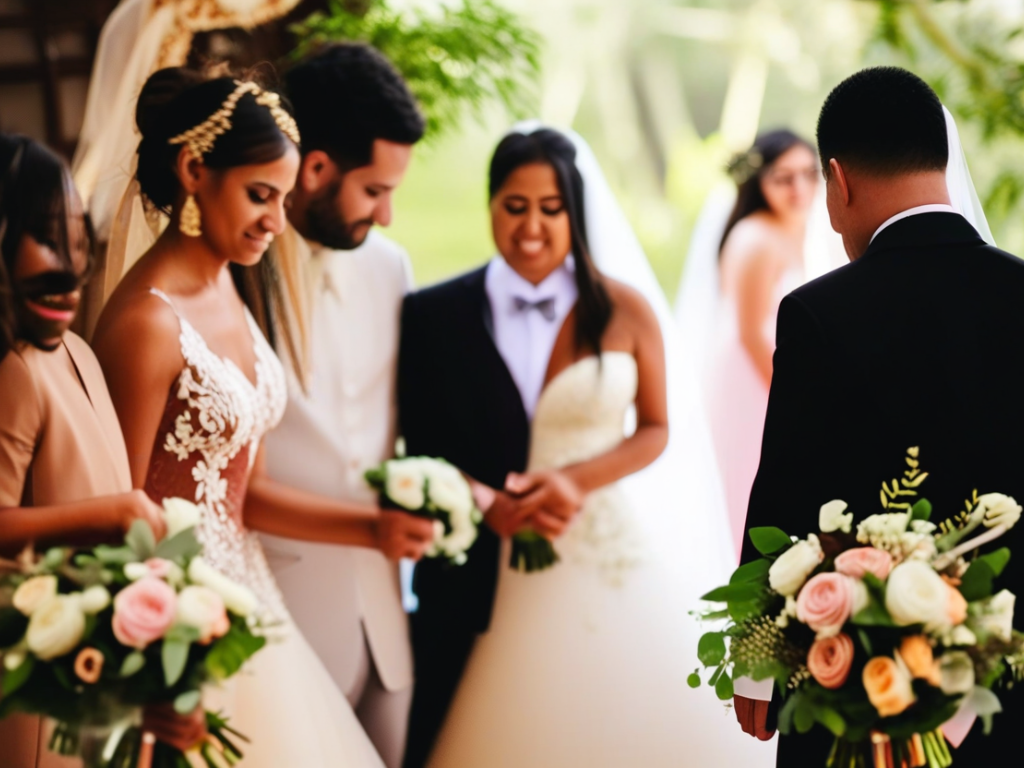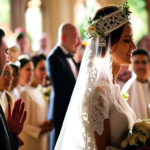How to Navigate Conflicting Family Traditions When Planning Your Wedding
Planning a wedding is an exciting time, filled with love, anticipation, and joy. However, it can also be a time when family traditions clash, causing stress and tension. Navigating conflicting family traditions requires empathy, communication, and compromise. Here’s how you can ensure your special day reflects both your families’ traditions and your unique vision.
In this article you will find:
- Understanding Each Family's Traditions
- Communicate Openly and Honestly
- Identify Common Ground
- Customize and Blend Traditions
- Set Boundaries
- Seek Support and Guidance
- Remember the Importance of Your Union
Understanding Each Family’s Traditions
Every family has its own set of traditions, customs, and cultural practices. Before diving into wedding planning, take the time to understand and appreciate each family’s traditions. Discuss with your partner and families about the significance of various customs and why they are important to them. This will help create a foundation of respect and empathy as you navigate conflicting traditions.
Communicate Openly and Honestly
Effective communication is key when it comes to dealing with conflicting family traditions. Create a safe space where both families can openly share their ideas, values, and expectations for the wedding. Be honest about your own feelings and priorities, and encourage your families to do the same. By fostering open communication, you can address potential conflicts early on and work towards finding mutually agreeable solutions.
Identify Common Ground
While each family may have unique traditions, there may also be areas of commonality that can be celebrated together. Look for shared values, beliefs, or customs that both families can incorporate into the wedding festivities. Finding common ground can help bridge cultural or religious differences and create a sense of unity and harmony on your special day.

Customize and Blend Traditions
One creative way to navigate conflicting family traditions is to customize and blend elements from each culture or background. For example, you could combine traditional dances, music, or rituals from both families into a unique wedding ceremony or reception. By blending traditions, you can honor your families’ heritages while creating a one-of-a-kind celebration that is meaningful to you and your partner.
Set Boundaries
It’s important to establish boundaries and communicate your non-negotiables when it comes to wedding planning. While compromise is essential, there may be certain traditions or practices that do not align with your values or vision for the wedding. Clearly communicate these boundaries to your families, and respectfully explain your reasons for any decisions. Setting boundaries will help maintain harmony and ensure that your wedding truly reflects who you are as a couple.
Seek Support and Guidance
If navigating conflicting family traditions becomes overwhelming, don’t hesitate to seek support and guidance. Consider enlisting the help of a wedding planner who has experience in multicultural or blended weddings. A professional planner can offer creative solutions, mediate discussions, and provide valuable insights to help you navigate cultural and familial expectations.
Remember the Importance of Your Union
Amidst the whirlwind of wedding planning and family dynamics, remember the core reason for your celebration: your love and commitment to each other. While family traditions are meaningful, your wedding is ultimately a reflection of your union and the life you are building together. Keep your relationship at the heart of the planning process, and let that guide you in making decisions that feel true to who you are as a couple.
By approaching conflicting family traditions with empathy, communication, and creativity, you can create a wedding that honors your families’ heritages while celebrating the unique love you share. Embrace the opportunity to blend traditions, set boundaries, and craft a celebration that is authentically yours. Remember, your wedding is a reflection of your story, and navigating conflicting family traditions can ultimately strengthen the bond you share with your partner as you embark on this new chapter together.


